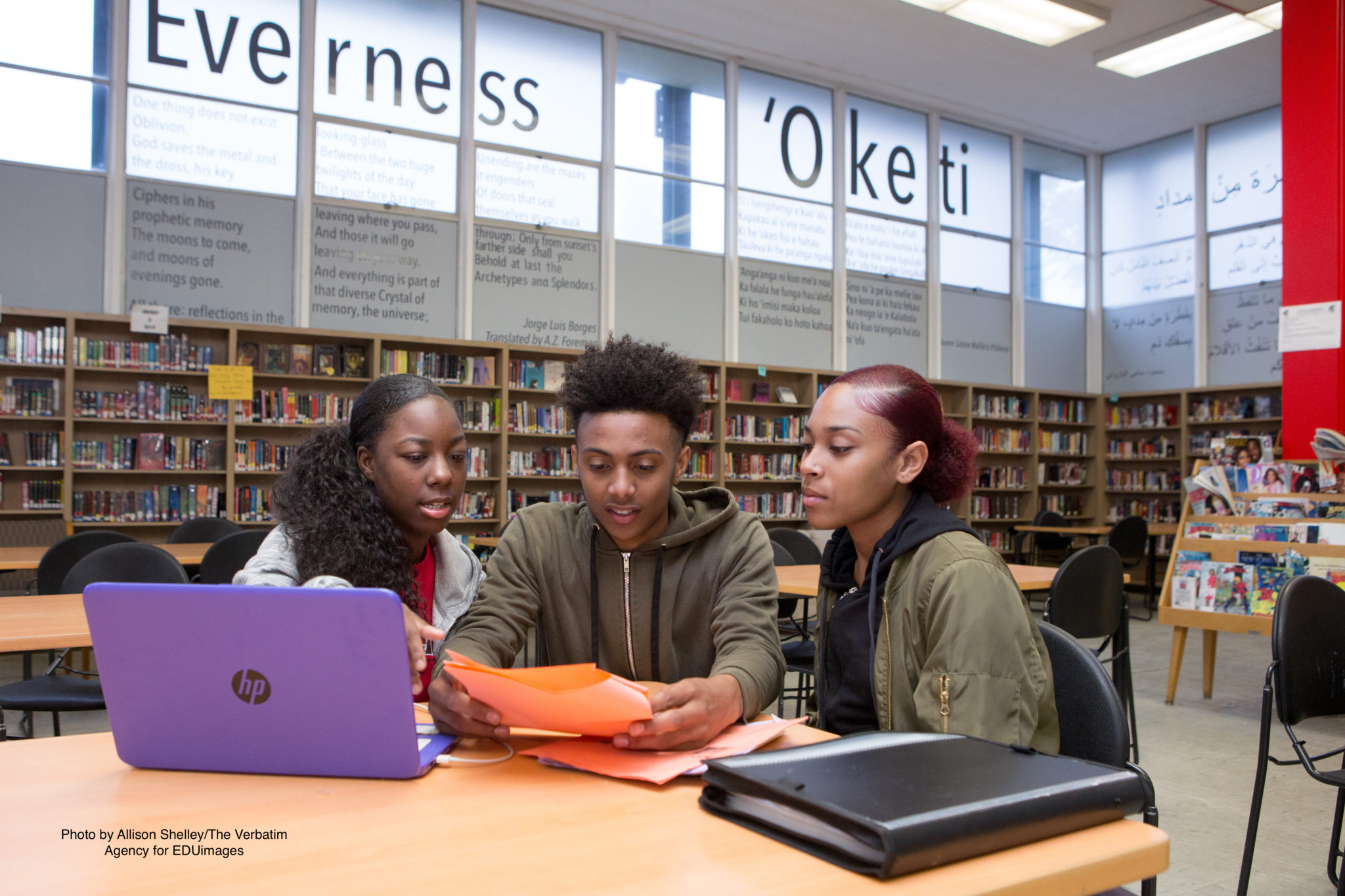Rebecca graduated from high school believing that learning was not just routine memorization — but that what she learned in the classes she took throughout middle and high school equipped her with skills to be successful in life.
“I only [had] that viewpoint after taking advanced courses,” she said.
Yet not all students in New York have the chance to gain this experience and perspective. According to research from the New York Equity Coalition, Black, Latinx, and American Indian students and students from low-income backgrounds are often denied access to advanced courses.
That’s because many students of color and students from low-income backgrounds attend schools that do not offer courses such as AP/IB, Physics, Calculus, and more. And even when schools do offer these courses, they are often underenrolled in them.
Rebecca took Algebra 1 in middle school — a ‘gatekeeper course’ — which by taking it in 8th grade put her on the trajectory to take Calculus her senior year of high school. But the same wasn’t true for some of her friends — many of whom she said did not have the same opportunity.
“I know IB is a top-of-the-line academic program. Even though [my high school] was in a predominantly Black neighborhood, it was almost as if top-of-the-line academic honors was just filled with people that weren’t representative of the neighborhood,” Rebecca said. “It really annoyed me. I was one of the few people in my year that was Black.”
As a middle school student, Rebecca recalls that her school encouraged her to take advanced courses. “I was taught that, ‘Yo, you’re smart and you belong here. But not everyone I went to middle school with had that drive to learn.”
Many of her friends weren’t enrolled in her high school’s IB program because, as she said, it was never something they were told they could do early on based on their middle school experience.
Rebecca’s story is not uncommon for students across New York State — many other students we talked to have observed similar, if not the same, inequities in their schools.
And their experiences are reflected in the data.
In the 2019-20 school year alone, while 22% of students who were not from low-income backgrounds were enrolled in Algebra 1, just 14% of students from low-income backgrounds were enrolled in this course. Further, while 91% and 49% of Asian and White students, respectively, were enrolled in AP/IB courses, only 36% of Black students and 35% of Latinx students were enrolled.
But it doesn’t have to be this way. This legislative session, New York can change course by passing S.1111/A.4407. This bill would improve educational equity in New York State by informing families early on about the benefits of enrolling in advanced classes and the support available.
While our research can unearth deep equity issues in New York’s education system, real student experiences paint a picture of how this issue impacts students and why it’s essential this course access bill is passed.
Follow along in our three-series blog that will dive into students’ experiences on access to advanced courses, what kind of opportunities they want for themselves and their peers, how schools could support them better, and what long-term solutions they have to ensure underrepresented communities have access to critical coursework.
Because, as Rebecca said, “I wish they pushed [taking advanced courses] and be like, ‘yo, this is something for everybody — not just the White people you see here.”

